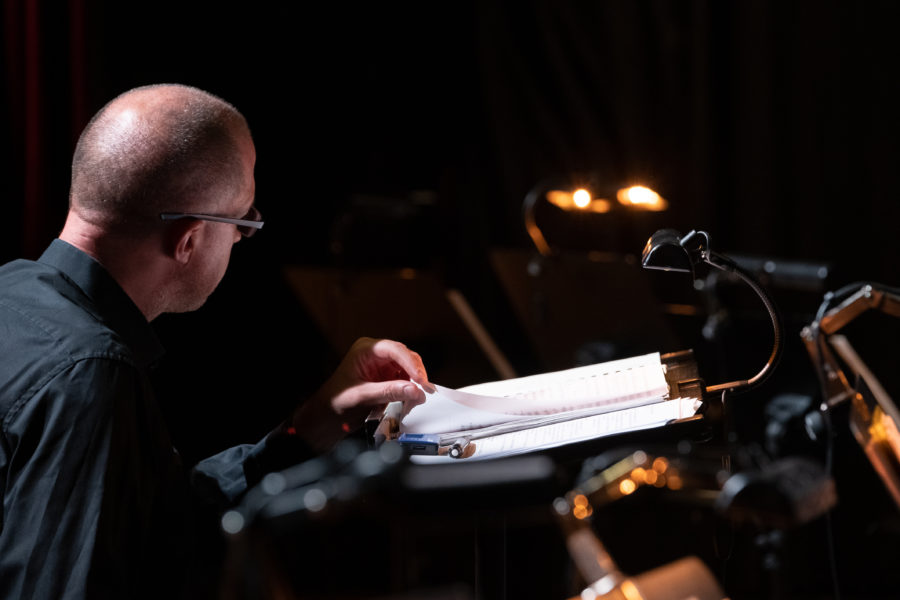The Art of Arranging
The often underestimated art form of arranging and presenting is very important to Ed Partyka: “‘The art of arranging’ is a subject very close to my heart. I compose music, but I see myself primarily as an arranger. Arranging is the part of writing music that I enjoy the most and find the most interesting, whereas composing has always been extremely tedious, hard work for me. When I write new music, I often get through the composing part only by thinking of the reward I’ll get when I can finally arrange that new music for jazz orchestra.”
In music diction, “arranging” means the design and presentation of a composition. The arranger decides on the orchestration, instrumentation, soloists, harmony, rhythm, groove, meter, tempo, form, and dramatic arc of the arrangement. In principle, the arranger can change any element of a composition – except the melody. If an arranger changes the melody significantly (to the point that the original is no longer recognizable), an arrangement becomes a new composition.
The extent to which an arranger changes a composition and adds musical elements can vary greatly. If little is changed from the original composition, an arrangement is more like a cover version, with the arranger working as a skilled technician (craftsman). However, when an arrangement moves further away from the original, with greater changes and more original material, arranging becomes a creative art form. This is also why copyright societies keep a separate category for “arranger.”
Some of the great creative arrangers who have influenced Ed Partyka include Duke Ellington, Bob Brookmeyer, Jim McNeely, George Russell, Carla Bley and Gil Evans.
